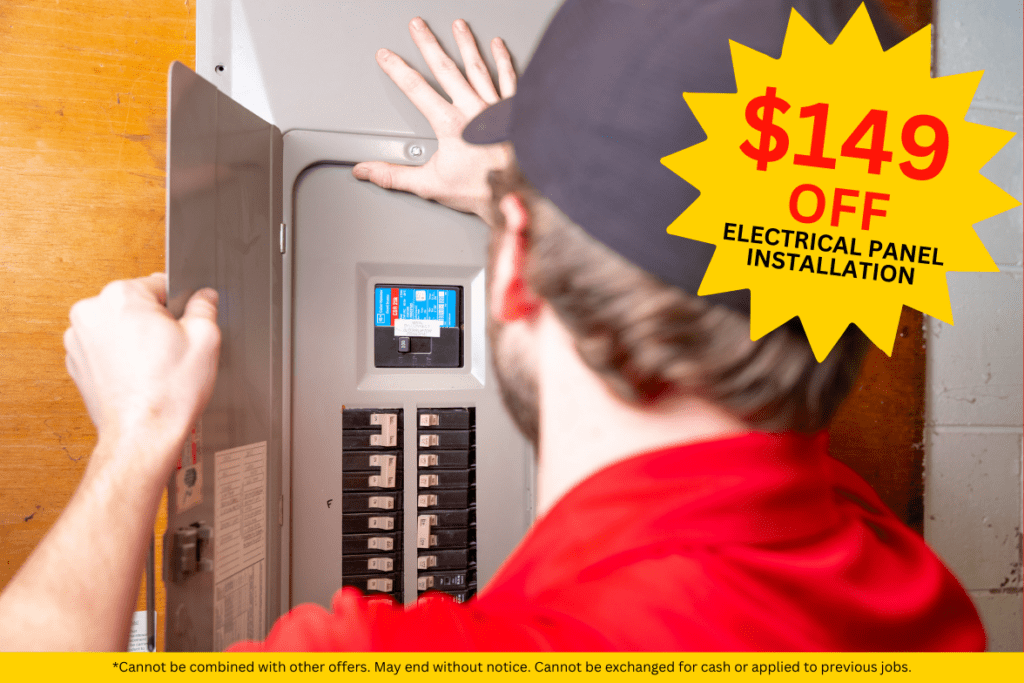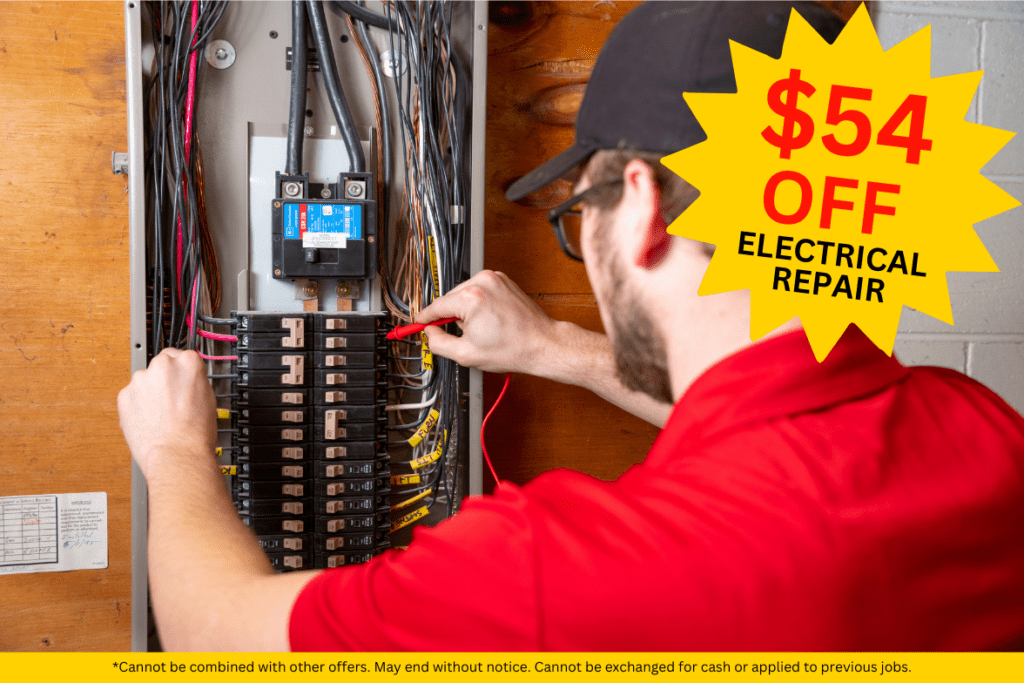EV Chargers
$89 Off EV Charger Installation
Service Details
- Fast Charging
- Professional Installation
- Home Compatibility
- Code Compliance
- Safety Inspection
About EV Charger Installation
Charge your electric vehicle at home with ease—now offering $89 off professional EV charger installation! Our expert electricians will assess your home’s electrical system, recommend the right charger, and ensure a safe, code-compliant installation. We handle all wiring, mounting, and setup so you can enjoy fast, reliable electric vehicle charging. Expect our uniformed technicians to arrive on time, provide a detailed inspection, and show you a video of any necessary upgrades before starting. We won’t begin work without your approval, and payment is only collected upon completion. Get the convenience of at-home EV charging with a seamless installation today!
Service Details
- Fast Charging
- Professional Installation
- Home Compatibility
- Code Compliance
- Safety Inspection
FAQ's
The cost typically ranges from $1,000 to $2,500, depending on the charger type and electrical setup.
Most installations are completed within 2–4 hours, depending on your electrical system.
In most areas, a permit is required, and we handle all necessary paperwork for you.
Level 2 chargers are the best choice for home charging, providing faster charging than standard outlets.
We will inspect your panel and upgrade it if necessary to handle the additional power load.
Yes! A professionally installed EV charger can add convenience and appeal to potential buyers.
No data found for the provided Place ID.










